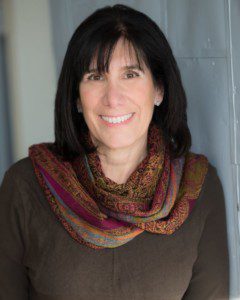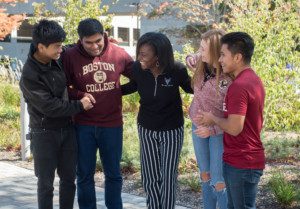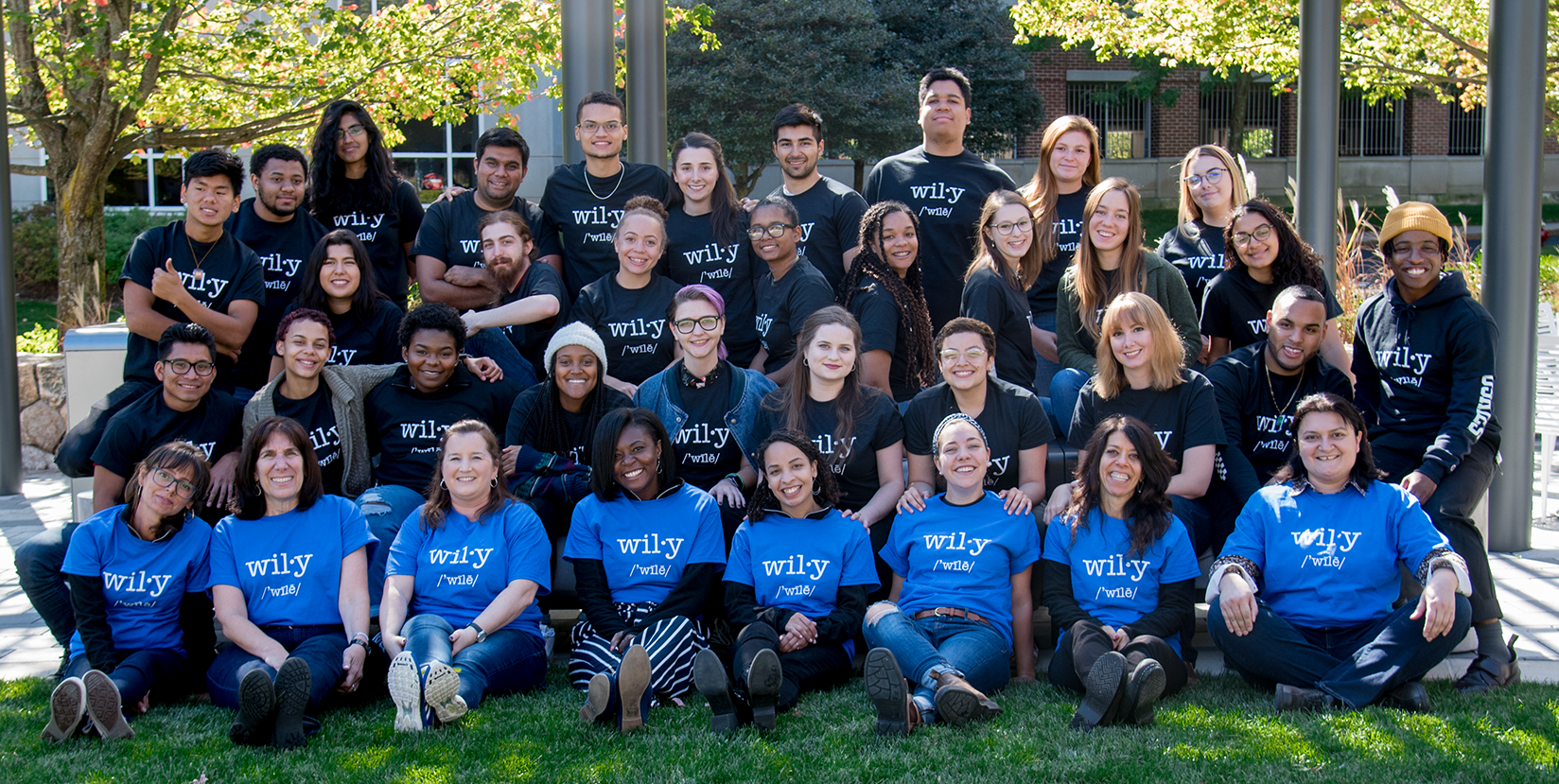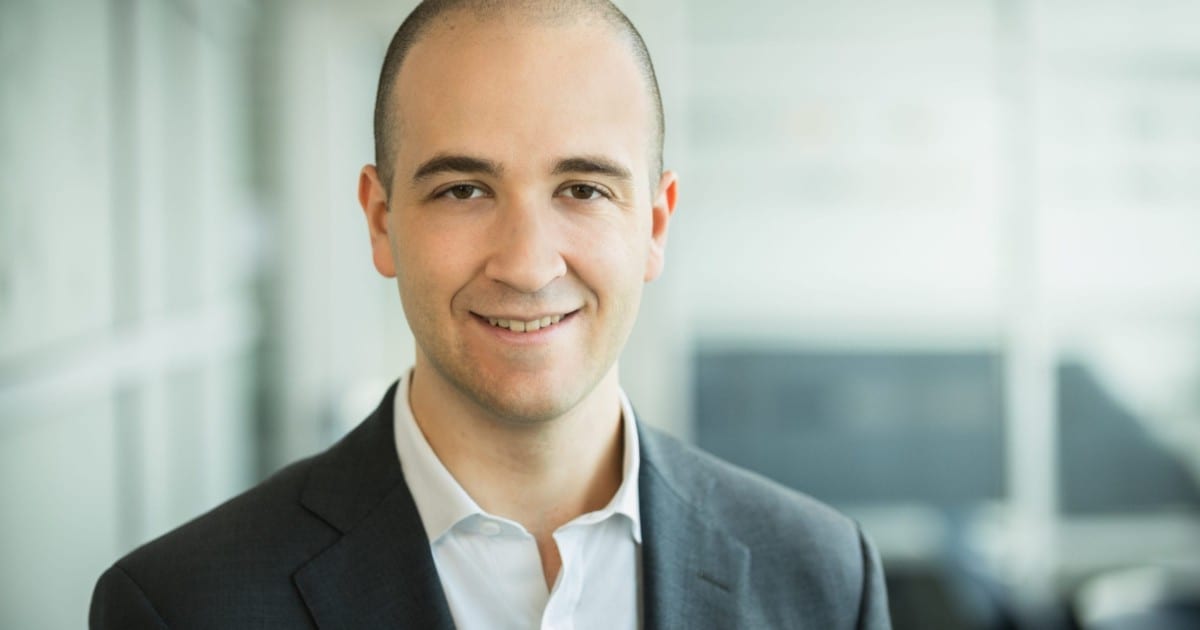When she turns her camera on, Judi Alperin King, Ph.D., appears on Zoom, revealing a bare backdrop behind her, and the muffled but familiar noise of construction rumbling in the background. She quickly notes that the Wily Network, a safety net organization that supports college students’ basic needs, is expanding its space to meet the increased demand for services.
King founded the Wily Network in 2014 to support young adults on their own, often with limited means, as they transition to and throughout college. Today, the group provides clinical coaching, financial support, and community-based assistance to over 80 students — called “Wily Scholars”— on ten different college campuses in the Greater Boston Area.

Judi King, Ph.D., Founder of the Wily Network
At the helm for over six years, King describes her path to taking on what has been an under-addressed gap in student services on college campuses: proving a safety net for students without family support. After over 30 years at Wediko Children’s Services — which provides individual and family support for children with a variety of emotional, social, behavioral, and learning difficulties — King hoped to work with college students, ideally on a college campus. Her search steered her toward a dead-end, however, as she learned that she was qualified to be either a college therapist or professor, neither of which interested her.
Recognizing that opportunities to promote the mental health and wellbeing of college students go well beyond what staff, counselors, or faculty alone can offer, King set out to pave her own way. A New York Times article, “Out of Foster Care, into College,” inspired her to consider the infrastructure in place for students as they entered adulthood and began to navigate the often foreign terrain of higher education.
“It was those young people that I had worked with that had really experienced trauma, had been in foster care, had been part of failed adoptions, but had made it to college — or, and had made it to college, I should say — and they were in college largely on their own,” King explained.
King spent a year researching programs around the country for college students recently out of foster care, discovering that the few dozen in existence primarily were, and still are, located in California, Michigan, Florida, and Texas. A University of Michigan program called Blavin Scholars became the primary model for what is now the Wily Network — but with one critical difference: “At that point, Blavin Scholars, as most of the rest of the country, solely served young people who had been in foster care,” King said.
While the Wily Network had also framed itself as serving young people who experienced foster care, King soon realized that, as a result, the group was unintentionally alienating students who had dealt with serious life challenges outside of the foster care system. Students whose parents were incarcerated or managing addiction but who had never interacted with the Department of Children and Families assumed that they couldn’t become a Wily Scholar.
In fact, students do not need to disclose their personal histories at all, if they prefer not to. “If you have zero expected family contribution and you say you are a Wily Scholar, then you’re a Wily Scholar, if we have room,” King said.
But expanding the traditional definition of “high-needs” college students also creates a challenge in reaching those students who are so frequently overlooked. “We believe, young people who are not in foster care in the same situation are actually worse off because no one was tracking them, and no one knew where they were or what they were experiencing,” King explained.
Even when King approaches schools about referring potential Wily Scholars, it often becomes clear that students who qualify are flying under the radar. Administrators express their appreciation for Wily’s mission, but can’t come up with any students who ‘fit the description.’ King then prompts them to check student financial aid forms and personal essays, or consider those without an expected family contribution or an emergency contact.
In the end, King said, “Every school calls back two weeks later and says, ‘Actually, we found a couple of students.’”
***
Supporting Scholars from move-in to move-out
For many Wily Scholars, by move-in day, they’ve already begun to feel they are different from many of their peers. It’s easy for students without parents around to feel alienated and overwhelmed, watching their roommates unpack and get settled with the help of their families.
“They’re usually very prepared to be one of the poorest students on campus,” King said. “But they’re not prepared for the level of involvement that most families have with their college students these days.” So, from move-in day and beyond, Wily’s wraparound services take into account that Wily Scholars are going at it alone, financially, physically, and emotionally.
Wily doesn’t replicate any services offered by schools, but it picks up where colleges leave off, including by helping connect students to on-campus opportunities. “Student Affairs goes home at five o’clock on Friday. Who do students call when they have a rash on their elbow, and they’re trying to say, ‘Should I go to urgent care?’” King said. “Or when they got an A on a paper, or when they forgot to write a paper.”
Every Scholar works with one of Wily’s clinical coaches, meeting at least once a week and at any other point, 24/7, in case of emergency or for additional assistance. With Wily’s monthly stipend, Scholars can also fend off major concerns around food insecurity or health care costs. Wily is able to provide for students thanks to backing from foundations and private benefactors, including donors who pay $50,000 over four years to fund individual Scholars throughout their college career.
“It was those young people that I had worked with that had really experienced trauma, had been in foster care, had been part of failed adoptions, but had made it to college — or, and had made it to college, I should say — and they were in college largely on their own,” King explained.
Beyond clinical and financial considerations, Wily works to address one of the biggest challenges these students often face – forging a sense of belonging within a community that can feel unwelcoming. Community Days and other group outings bring Scholars together and allow them to be themselves and feel understood.
Victor, a Wily Scholar and rising senior at Boston University, says that it can be easy to put on a facade at school that doesn’t necessarily reflect who he is or where he comes from. “But when you meet with other Scholars, you just understand that you can just be comfortable and be yourself and no one’s gonna judge you. No one’s gonna be like, ‘Oh, you don’t belong to X and Y Country Club?’ Like, no one’s gonna care,” he said.
Tackling student mental health is a major part of the Wily Network’s efforts — now more than ever, as the pandemic only exacerbated some of the conditions that already existed. Many Wily Scholars arrive on campus with significant, and often unaddressed, trauma that college counseling centers are not always equipped to handle. Because on-campus counselors tend to be overwhelmed and offer limited sessions as it is, King says Scholars and their needs end up being “invisible in plain sight” — overlooked and underserved.
This year, Wily set aside over $50,000 for therapy for Scholars, but with the stress of isolation, financial setbacks, and racism driving more and more people to seek counseling, finding available and quality clinicians is no easy feat. Victor acknowledges that Wily’s financial assistance can make the difference for Scholars who might be hesitant to invest in therapy at the cost of other basic needs.
“I feel like, with Wily, everything is really done to prevent those barriers to entry — to really focus on yourself, focus on your own growth, and not have to worry about anything like that,” he said.
Wily is also now allocating funds for around two to four students per semester to take mental-health leaves from school. When it comes to leaves of absence, King recognizes the particular burden for students, like Wily Scholars, who don’t have homes to take leave to. Many, but not all, colleges extend health insurance coverage for students on-leave, and they still need to find a way to afford housing, mental health services, and other basic needs.
“For a Wily Scholar, that would mean you would have to work 40 to 60 hours a week to be able to afford housing and food, let alone do any of the other things that you need to do so you’re ready to go back to school,” King said.
So, this January, Wily partnered with practicum students at Boston University’s School of Public Health to investigate who takes mental health leaves and who, if anyone, from their school looks out for them in the process. In the end, King was disappointed to learn that colleges “have no idea.”
“Most reported that they don’t know how many people take medical leaves.” she said. “They don’t know what happens to them while they’re on leave. And they’re not tracking them when they come back.”
***
‘Recalibrating’ in 2021, and beyond
As this policy work continues, King says that Wily is busy “recalibrating” back to regular coaching and community events in anticipation of Scholars returning to in-person classes this fall. Some Scholars have not only never set foot on their college campus, but never met their Wily support team face-to-face. A special orientation for those Scholars will bring them together and prepare them to avoid first-year mistakes that could now have sophomore consequences.

After six years of witnessing the steady increase in demand for Wily’s services, King hopes for its expansion, whether by establishing other networks across Massachusetts or collaborating with community colleges to help potential Scholars transfer to four-year institutions.
King would also like to broaden the professional and networking opportunities these students need. “Without social capital, it’s still very hard to find a job, even if you’re a straight A student at MIT, because your resume doesn’t look like everybody else’s resume,” King explained. A desire for students to build their own social capital and close the “networking gap,” as she calls it, is the motivation behind Wily’s upcoming career fair this October.
For Victor, Wily has opened up mentorship opportunities to connect with professionals who review his resume or help get his LinkedIn profile “up to par.” Even the board members at Wily make themselves accessible to Scholars for any career or life-related questions. “That’s, I think, pretty unique in the sense of like, I don’t know many other organizations where you can just DM [direct message] a board member and be like, ‘Hey, What’s up?’” Victor added.
For all of the support Wily provides, King says its fundamental goal is for Scholars to not only graduate with a job but arrive at graduation with the sense that they’ve built a lifelong community. Even more, King hopes that Scholars find themselves emotionally balanced, perhaps with a stronger commitment to prioritizing their own wellbeing.Victor also has his own ideas for the direction of Wily, and is excited about the possibility of expanding the career and networking programming, or a speaker series that brings in experts and Wily alums to speak about their professional lives.
As Victor enters his last year at BU, he says the Wily system has already helped him feel both more comfortable at school and more confident overall. “We’re all here together, and it’s not just me versus the world,” he said. “Here are so many other people that are like me, that are succeeding, that are doing well, that are accomplishing these awesome things. And it’s really encouraging to kind of see that.”



